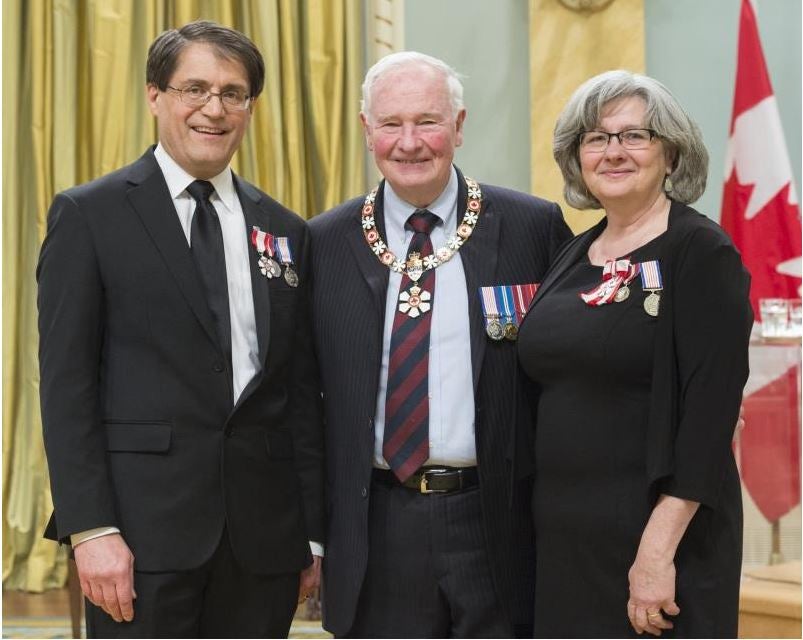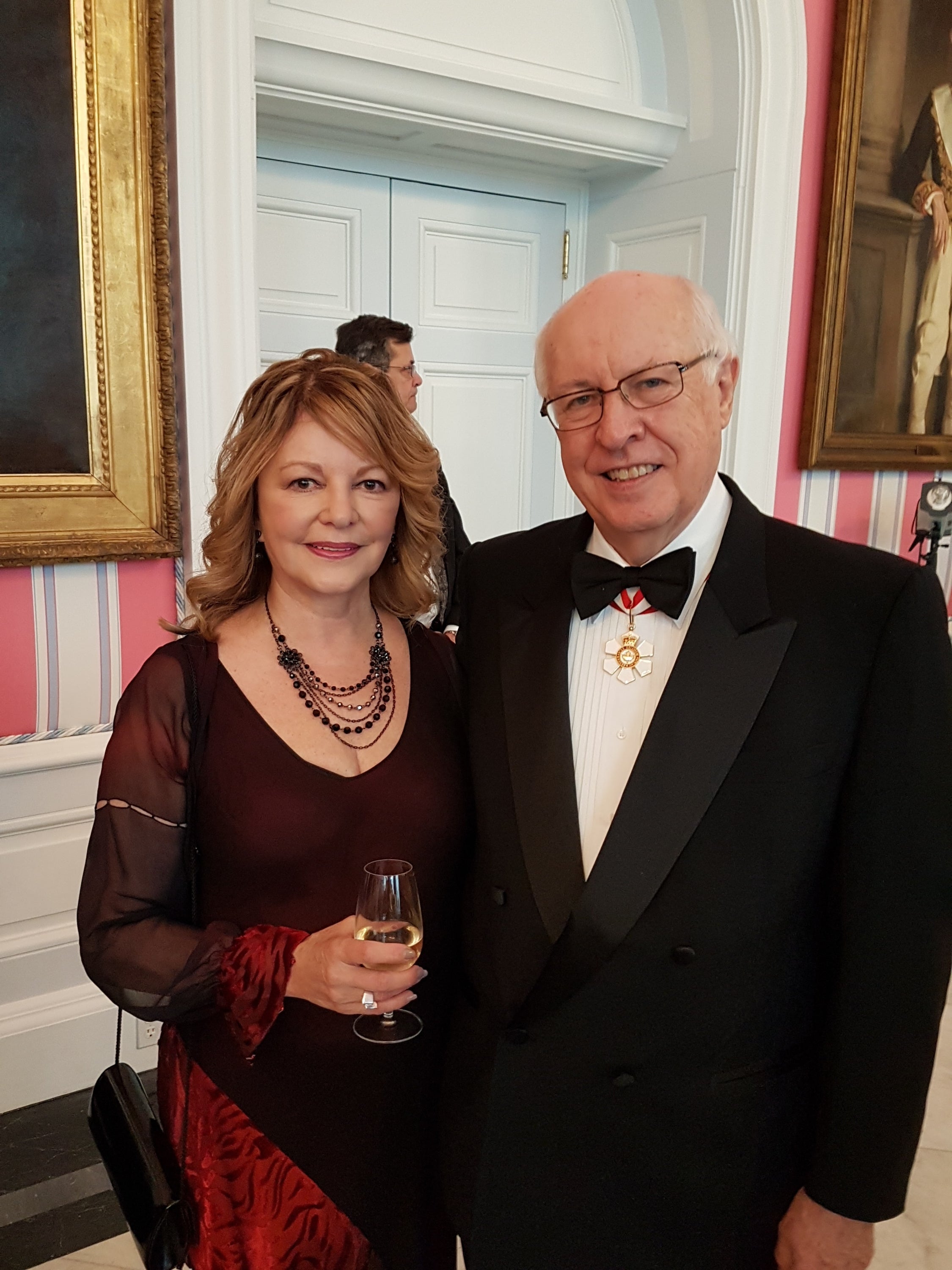
Written by Joe Mancini (BA ’81; MA ’82)
History alumnus Joe Mancini (BA ’81; MA ’82) and wife Stephanie Mancini (BA ’82) were invested into the Order of Canada by His Excellency the Right Honourable David Johnston, Governor General of Canada, during a ceremony held at Rideau Hall, in Ottawa, on May 12, 2017.
Canada Day 2016 was a special day for the University of Waterloo History Department when it was announced that two of its long-time professors Jim Walker and John English and a former graduate student were named or promoted within the Order of Canada.
As a student in the late 1970’s, I found the University of Waterloo History Department was filled with professors who critically challenged the status quo. They were a demanding lot that thought nothing of assigning 50 books for a reading course. Yet it was through reading those books that I learned in detail how Canada’s indigenous people were willfully decimated by the policies of the English, French and Canadian governments (thank you Professor Palmer Patterson!). The process of historical scholarship has a way of shining a light on realities we would rather ignore.
Professor Walker was named to the Order of Canada for his influential scholarship that has shed light on the contributions of black Canadians to our nation. He is still a full time professor and this winter published a book on the life of activist Rocky Jones, a central figure in African-Canadian history and the civil rights movement in Canada. While waiting in line at the book signing, I calculated that I first took Professor Walker’s Third World History course (History 103) 40 years ago. He began that first class with a yoga breathing exercise that encouraged the first year students to feel a new way of thinking. This course was from the perspective of the developing world as were the books Walker assigned like Walter Rodney’s How Europe Underdeveloped Africa and Frantz Fanon’s The Wretched of the Earth.
John English grew up in nearby Plattsville and is a political force connected as an academic and as an activist within the Liberal Party, working to define Canada’s liberalism as a successful and ongoing project. He led the development of CIGI (Centre for International Governance Innovation) and is now doing similar work as the Director of the Bill Graham Centre for Contemporary International History. John English’s scholarship has been focused on strengthening Canadian politics especially through books written on topics as diverse as the History of Kitchener (with fellow UW History professor Ken McLaughlin) and biographies of Lester Pearson and Pierre Elliot Trudeau.
When John English was elected as a Liberal Member of Parliament for the Kitchener Centre in 1993, I had a front row seat observing the worlds of scholarship and politics coming together, watching a former professor skillfully conduct town hall meetings, navigate discussions on social policy and engage the community on immigration and refugee policy. Professor English was promoted to Officer of the Order of Canada for his contributions as a historian, author and administrator, expanding our knowledge and understanding of Canada's rich political heritage.

Back in 1978, Stephanie Mancini (BA ’82) and I travelled to Tanzania on a mission project to build water drawing windmills in villages. Back at St. Jerome’s, I found in the history department, a world of African history courses to explore. In the early 1980’s Professor Walker supervised my master’s thesis on Tanzanian cultural history. The core of this thesis was Tanzania’s ujamaa village philosophy, which Stephanie and I used as an inspiration when starting The Working Centre in 1982. Thirty-four years later, Stephanie and I were made members of the Order of Canada for the development of The Working Centre in downtown Kitchener, which is like an ujamaa village that integrates a participatory approach, creating access to tools, food, housing, employment, health and trading through 30 different community-based projects.
The Order of Canada is about the desire to create a better country. It is recognition for both the imagination and action that can define who we are as Canadians. During the investiture ceremony of the Order of Canada you feel a deep common cause with researchers, activists, community workers, scientists, and athletes who want to stretch the imagination of Canada. In Rideau Hall you can feel the history on the walls embedded in paintings, telling stories of how the government of Canada has forged its’ identity. You can anticipate the growing reality that will recognize the historical claims of Canada’s first people.
If the goal of an arts education is to serve community then the University of Waterloo History Department is a decent representative of what is possible when professors and students use history to serve the common good.